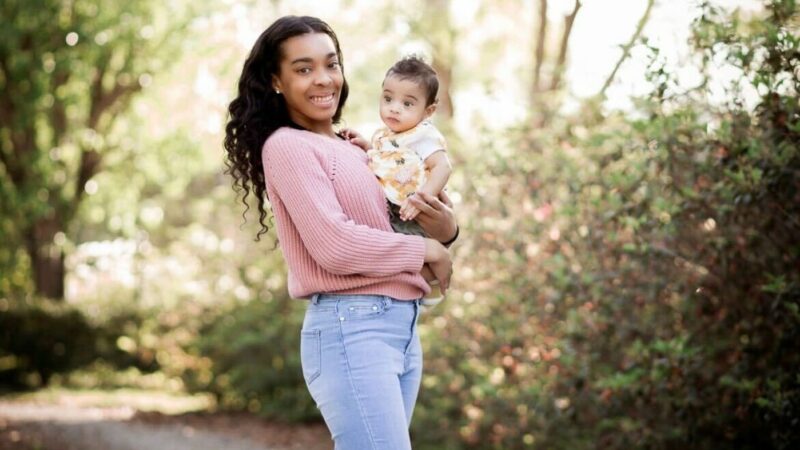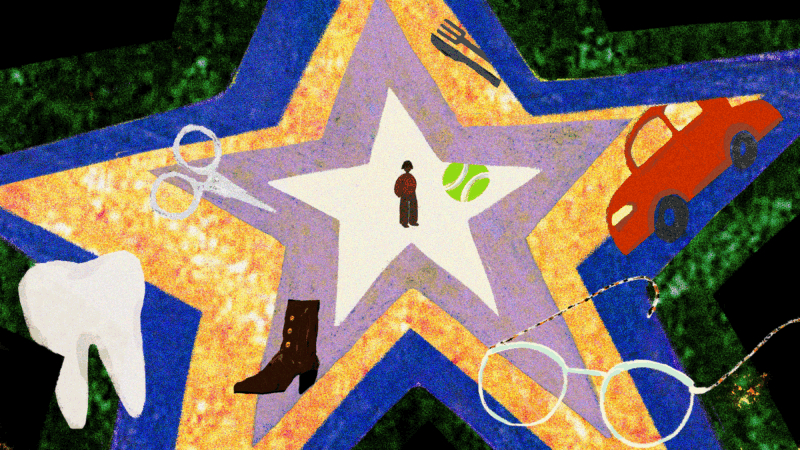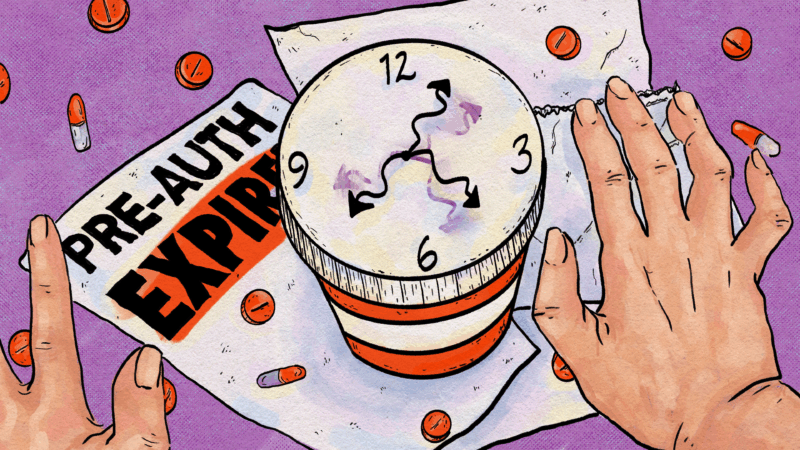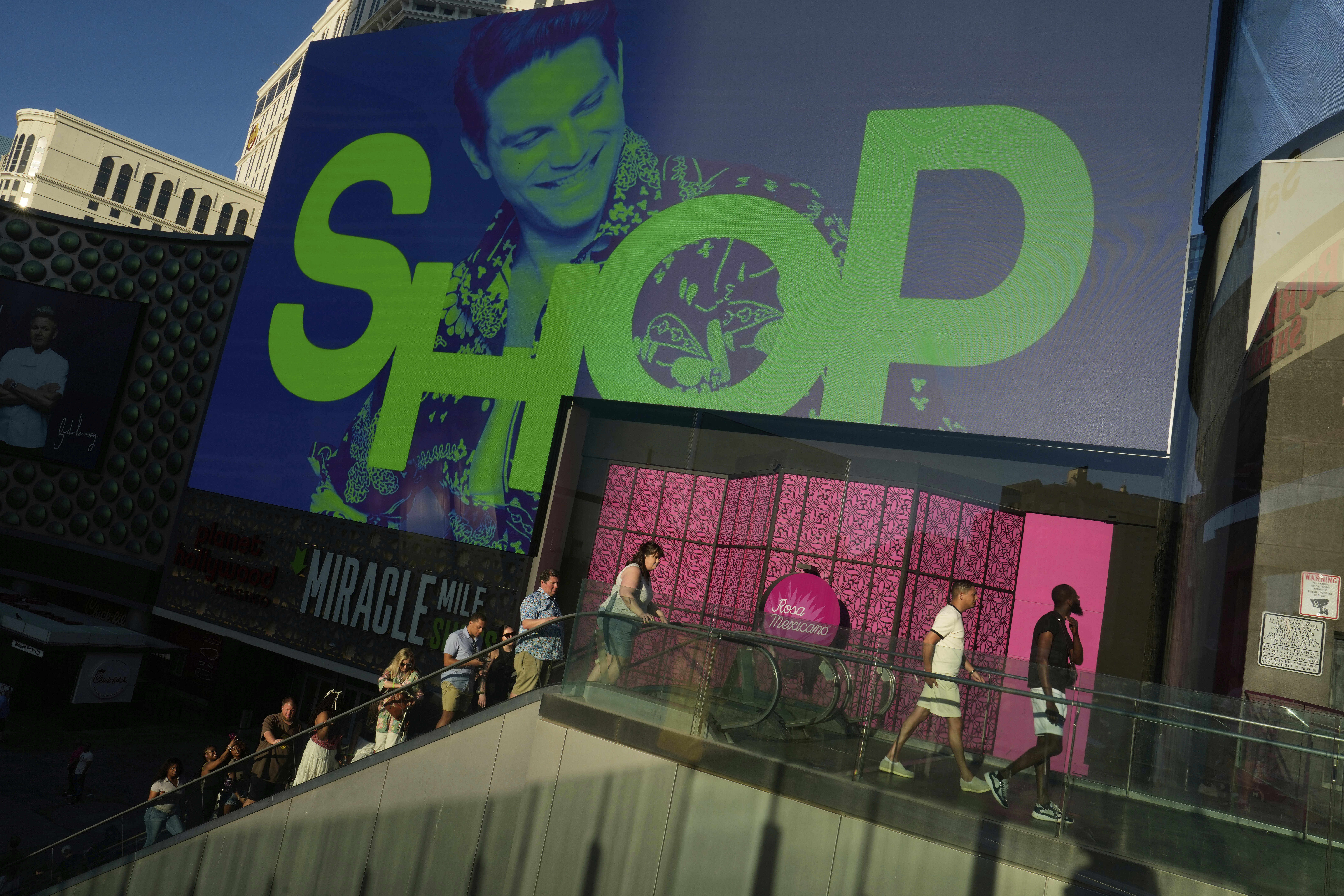These 3 Black moms receive a ‘guaranteed income.’ Here’s what they’re doing with it.
Nia, with her daughter, is participating in a guaranteed income project in New Orleans on April 30, 2022.
By Aubri Juhasz and Stephan Bisaha/Gulf States Newsroom
Guaranteed income is a radical idea to deal with income inequality that’s actually pretty simple – give people in poverty free money every month, with no strings attached.
Dozens of cities launched pilot programs this year after receiving $500,000 grants from a national advocacy group Mayors for a Guaranteed Income. The group has two goals: In the short-term, improve people’s lives by giving them cash. Long-term, they want to build the political will to create a federal guaranteed income policy.
Receiving cities decide who to give the money, for how long and how much money they’ll receive each month. New Orleans is giving $350 a month to young adults. Shreveport is sending $660 a month to single, low-income parents. While Birmingham’s program is for single female heads of household and has no income cap.
Regardless of the specific rules, a common thread is that Black mothers are often the ones enrolled in these pilots and, in some cases, explicitly targeted. Proponents for a guaranteed income say the current welfare system doesn’t meet the needs of these women and cash payments can help remedy that.
Additionally, women – especially Black women – face higher rates of poverty than men and they also tend to make less money than them.
Reporters for the Gulf States Newsroom are following multiple pilot programs in the South as they get underway. Here are three Black mothers in different cities receiving a guaranteed income.
The Gulf States Newsroom is only using first names in this story, since the women worry about being targeted if others know they’re getting extra cash.
New Orleans: Nia
When Nia gave birth to her daughter three months early, doctors told her the baby, who weighed less than two pounds, likely wouldn’t make it. But a year later, Nia celebrated her baby’s first birthday with a party in New Orleans City Park.
“I feel like every day should be a celebration,” Nia said. “I want everyone to join the celebration with me.”
Nia is 22-years-old and loves being a new mom. But she had a steep learning curve, especially as a single parent not making much money.
High rents pushed Nia to move in with her grandmother. And going back to work post-pregnancy meant spending a good portion of her income on a car, gas and daycare.
Welfare is supposed to help with a lot of this. But getting subsidized housing can take years. Other programs told Nia she was earning too much money to qualify. She makes $13-an-hour working with children with autism.
When asked how she was feeling, Nia described her thoughts as chaotic.
“I have so much on my mind,” she said. “But if I had more money… I probably wouldn’t be thinking about all that at once.”
It’s why Nia said she’s grateful for New Orleans’ guaranteed income program. The city’s giving the money to 125 young adults who aren’t in school or working. Nia started her job after applying and the program doesn’t boot people off once they start earning a paycheck. She’s set to receive $350 a month for ten months.
Most of the first check went to her grandmother for rent. She also got something for the baby. The rest went to gas.
Nia said the extra money helps, but high inflation limits how far the cash goes. Instead, she said to improve her situation long-term she needs to keep working, save for her own apartment and get a college degree.
“I’m grateful for the income,” Nia said. “But you know, I mean, it doesn’t change anything.
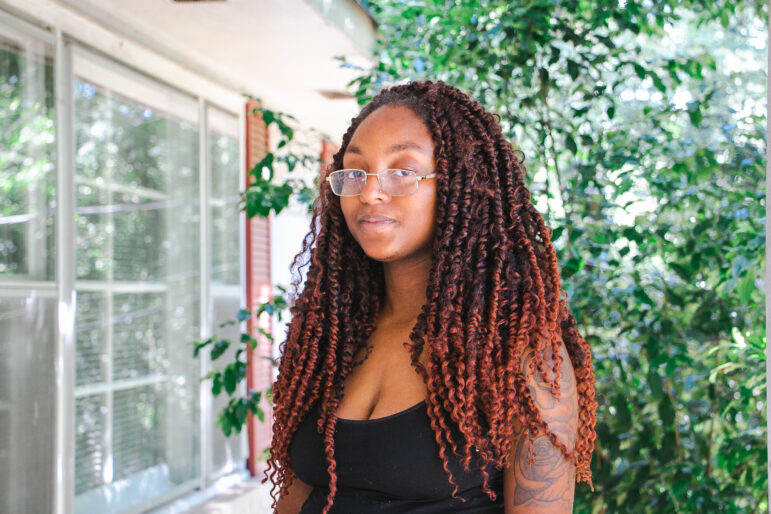
Birmingham: Miyah
Staying on the path out of poverty isn’t easy when it takes just one emergency to throw you off. After all, most Americans can’t cover a sudden $1,000 expense with their savings.
And Miyah has had a string of emergencies.
“I am one of the people who bad luck seems to follow every now and then at the worst timings,” she said.
Miyah, 24, lives in Birmingham, Alabama with a 1-year-old daughter, 4-year-old son and another baby on the way. The city’s guaranteed income program is meant to help 110 single mothers like Miyah by giving them $375 a month for a year.
When she was younger, Miyah dreamed of being a surgeon. During doctor’s appointments she says she would ask for gloves to pretend-treat her sister when they got home.
But bad luck kept getting in the way with things like car trouble and stolen rent money.
Her luck seemed to turn when she got a job at a hospital delivering meals – not the same as her dream of being a surgeon, but she loved getting to spend time with the patients, especially the ones who ended up staying for a long time.
“That really gives me a joy and what helps me wake up and look forward to working everyday,” Miyah said.
But complications with her pregnancy left her unable to lift anything above 10 pounds. The hospital let her go. But, she says they told her they would consider rehiring after she gave birth.
For Miyah, this was a big setback. But she says the guaranteed income lessened the blow.
“If I didn’t have that money then I know I’d be tons, tons more stressed now with the baby on the way and already having kids,” she said. “That just takes a lot of the stress away.”
During previous bad times, Miyah turned to her grandmother, mother and sister for financial assistance. But she knows they often have their own problems to deal with.
“When me and my mom and them all [are] going through something at the same time, I feel like I don’t have a person to lean on,” she said.
Which is why having a guaranteed income – literally guaranteed to be there – makes a big difference.
Any money not spent on emergencies Miyah said she plans to spend on her kids. Part of her guaranteed income money went toward a recent trip to Disney World to celebrate her son’s fourth birthday.
Miyah said she wants to use the rest of the money to build an emergency fund for her kids to protect them from the misfortunes that have delayed her own ambitions.
“Just so they don’t have to go through the same mistakes that I went through,” she said. “Their mistakes probably would be a little bit more easier or not as long-term as mine.”
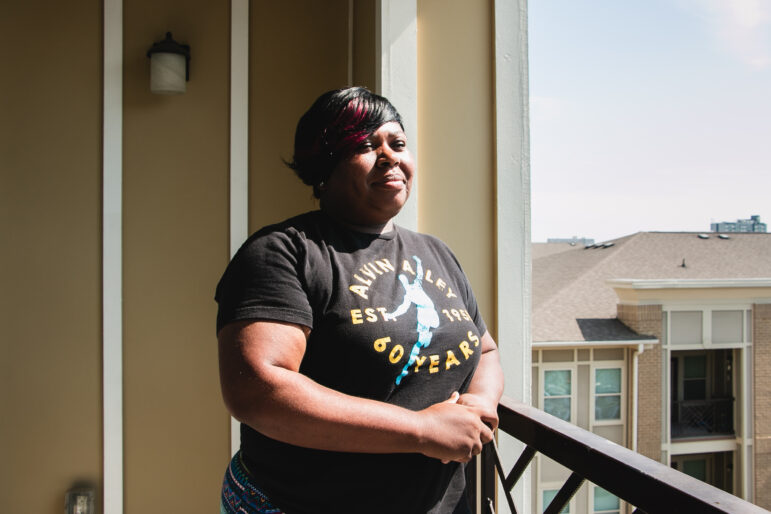
Atlanta: Natasha
Researchers and participants in other guaranteed income movements said moms tend to spend the money on two things – emergencies and their kids. But that’s not true for everyone.
Natasha, 42, hasn’t told her kids about the program yet. If she did, they might want more money from her, she said with a laugh.
Her kids are in high school and college. She said for 22 years she’s put herself on the backburner.
The roughly $30,000 a year Natasha makes as a school bus driver is barely enough to keep the family afloat, she said, and it means she hasn’t had any money leftover to invest in herself.
Natasha no longer receives welfare benefits, but when she applied for programs in the past, she said the people in the office treated her like she was taking the money straight out of their pockets.
She said for most her adult life she’s felt like an ATM – constantly being withdrawn from, without any deposits.
“If no deposits are being made, I’m rendered useless,” she said.
Natasha said, In Her Hands, the guaranteed income program she’s enrolled in, feels like the deposit she’s been waiting for. The initiative provides hundreds of women in Georgia an average of $850 a month for two years.
The program organizers said they wanted to celebrate these women, so they created an experience different from what Natasha said she experienced applying for welfare.
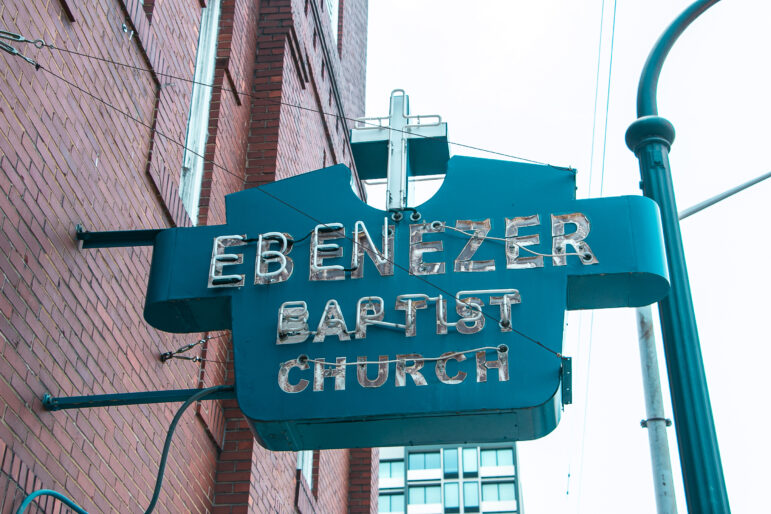
(Aubri Juhasz/ for the Gulf States Newsroom)
The onboarding happened at the historic Ebenezer Baptist Church, where Natasha said everyone from the security guards to the people handling her paperwork were kind and friendly. When the process was finished, Natasha said everyone in the room clapped for her.
“That blew my breath away,” she said.
Natasha said she’s adamant about not letting the money go to waste and plans to use the funds to scale back on work so she can go to school to become a respiratory therapist. She’s enrolled, applied for financial aid and plans to start classes in the spring.
As for the first $850 payment Natasha received? She hasn’t touched it. She says saving it so her next emergency doesn’t become a setback.
This story was produced by the Gulf States Newsroom, a collaboration among Mississippi Public Broadcasting, WBHM in Alabama and WWNO and WRKF in Louisiana and NPR.
Why farmers in California are backing a giant solar farm
Many farmers have had to fallow land as a state law comes into effect limiting their access to water. There's now a push to develop some of that land… into solar farms.
Every business wants your review. What’s with the feedback frenzy?
Customers want to read reviews and businesses need reviews to attract customers. But the constant demand for reviews could be creating a feedback backlash, experts say.
Can’t get a prescription renewed? Here’s how to cope with prior authorizations
These health care hurdles can stand in the way of getting treatment your doctor says you need. Here's what to know about how to deal with them.
‘Get back to integrity’: Oklahoma’s Kevin Stitt on Republicans after Trump
NPR's Steve Inskeep asks Oklahoma Gov. Kevin Stitt about his spat with President Trump, immigration and the future of the Republican Party.
Civil rights leaders say the racial progress Jesse Jackson fought for is under threat
Activists say racial progress won by the Rev. Jesse Jackson is under threat, as a new generation of leaders works to preserve hard-fought civil rights gains.
Tariffs cost American shoppers. They’re unlikely to get that money back
After the Supreme Court declared the emergency tariffs illegal, the refund process will be messy and will go to businesses first.

